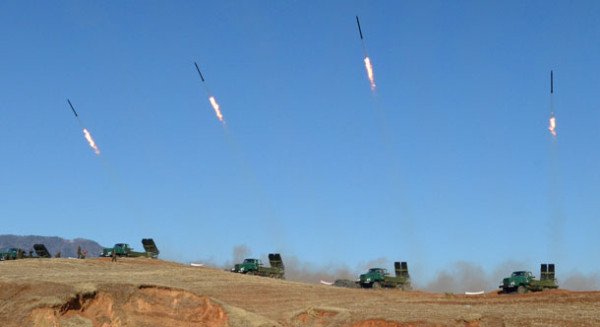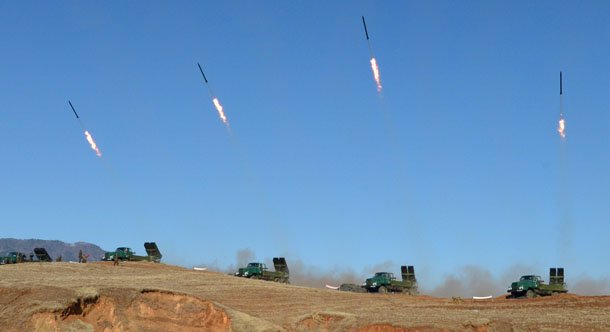FourNorth Korean ballistic missiles have been fired towards the Sea of Japan, South Korea military says.
Three of the missiles fell into Japan’s exclusive economic zone (EEZ) after flying some 600 miles in what Japanese PM Shinzo Abe called a “new stage of threat”.
They were fired from the Tongchang-ri region, near North Korea’s border with China, the South Korean military said.
The type of missile is unclear but North Korea is banned from any missile or nuclear tests by the United Nations.
According to a South Korean military official, the launch had taken place at 07:36 local time on March 6 and was being investigated to determine the type of projectile used.
The US military said later it had detected and tracked a launch but had determined that it did not pose a threat to North America.

State Department acting spokesperson Mark Toner said in a statement: “The United States strongly condemns the DPRK’s ballistic missile launches tonight, which violate UN Security Council Resolutions explicitly prohibiting North Korea’s launches using ballistic missile technology.”
On March 3, Pyongyang threatened to fire missiles in response to the Foal Eagle military exercises under way between South Korea and the US. North Korea sees the annual drills as preparation for an invasion against it.
Today’s launches were just the latest in a long series of tests of North Korean missile technology, which experts say is likely to be improving with successive tests.
North Korea has repeatedly said its space program is peaceful but it is believed to be developing an intercontinental ballistic missile that could strike the US.
However, most believe North Korea is still some time away from being able to miniaturize nuclear warheads so they could fit on to a missile.
Last month Pyongyang said it had successfully test-fired a new kind of ballistic missile in a launch supervised by North Korean leader Kim Jong-un.
The first test-firing since Donald Trump became president, it was condemned by the UN, the US, South Korea and Japan.
Recent activity in the Tongchang-ri region, home to the Sohae Satellite Launching Station, has been a cause for concern for Japanese officials.
According to South Korea’s Yonhap news agency, screens have been set up in key areas, probably to deter satellite surveillance.
On March 5, South Korea said it would quadruple the reward it pays defectors from North Korea who share information that will help enhance security to $860,000.
